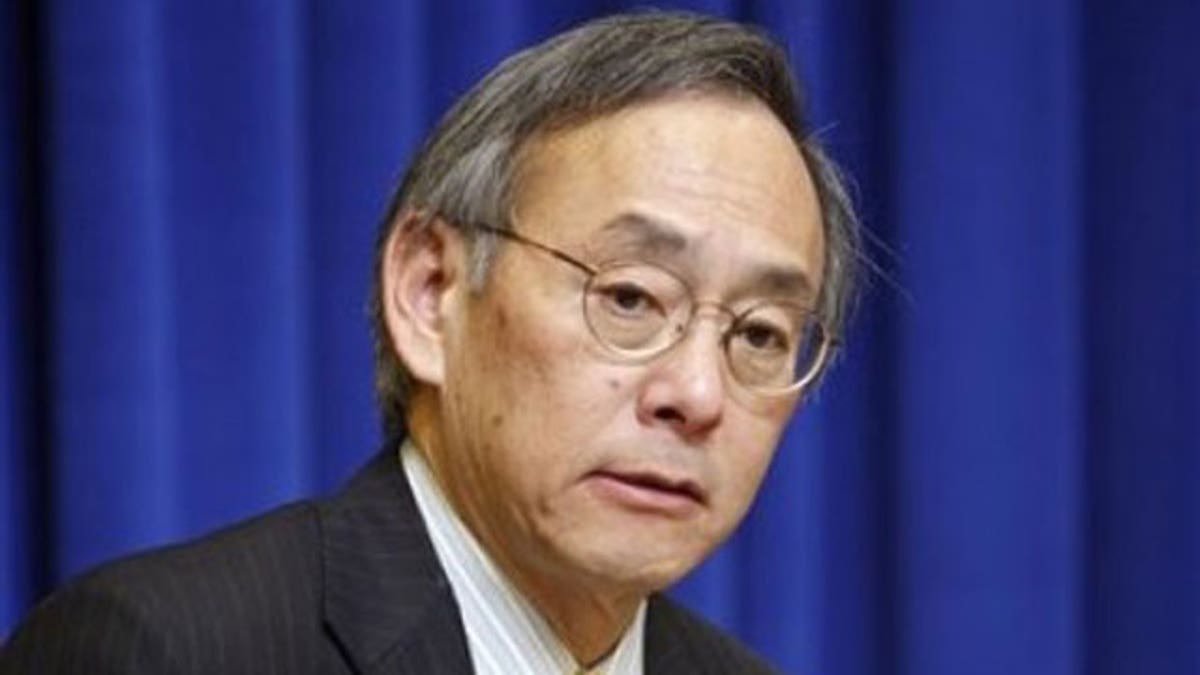
Secretary of Energy Steven Chu (AP).
Times have changed. As the Obama administration pursues a new moratorium on offshore drilling in reaction to the BP oil spill, a video circulating on YouTube shows it wasn't too long ago that a future administration official looked to BP to "save the world."
Energy Secretary Steven Chu, who was working at UC Berkeley at the time, says in the 2007 video, "There's been a lot of excitement that's been growing over the last several years and now with partnering with BP we will have the resources to actually carry out some of the things we want to do in order to help save the world."
Skip forward to June 2010. Following the largest oil spill in U.S. history, President Obama implemented a six-month moratorium on deepwater drilling, claiming that a presidential commission needs time to study offshore safety operations after the April 22 explosion at BP's Deepwater Horizon rig in the Gulf of Mexico.
The administration, however, hit a roadblock Tuesday when New Orleans federal judge Martin Feldman struck down the six-month ban on drilling, arguing that the rationale for the moratorium doesn't factor in the safety records of other drilling locations in the Gulf.
Interior Secretary Ken Salazar told a Senate subcommittee Wednesday that the moratorium needs to stay in place until it's known whether the deepwater drilling can be done safely. He pledged to issue a new moratorium in the next few days that will eliminate any doubt that it's needed and appropriate. The Justice Department announced Wednesday evening that it will appeal the ruling, saying that a second deepwater blowout could overwhelm the efforts to respond to the BP disaster, which left 11 workers dead and unleashed millions of gallons of crude into the Gulf. Two disaster response workers were killed Wednesday during clean-up efforts.
In cementing its case for a moratorium, the White House has said BP and other oil companies can no longer be trusted in assuring the safety of offshore drilling.
Chu, a Nobel-prize winning physicist, worked as director of the Lawrence Berkeley National Laboratory at the University of California at Berkeley before being picked by Obama to serve as energy secretary.
BP pledged a reported $500 million in February 2007 to help establish the Energy Biosciences Institute, an innovative biofuel program that Chu launched while working at UC Berkeley.
Touted as the world's largest public and private consortium that researches all aspects of bioenergy, the institute's partners include BP, the University of California, Berkeley, Lawrence Berkeley National Laboratory and the University of Illinois at Urbana-Champaign. The institute focuses in particular on alternative transportation fuels.
In the 2007 video that re-emerged this week, is seen telling UC Berkeley chancellor Robert J. Birgeneau, "We're going to save the world in part by doing something about the energy problem. And this impacts national security, this impacts economic prosperity, and, and most important for me, this impacts stewardship of the environment."
Chu's office told FoxNews.com Wednesday that the energy chief helped convince BP to fund the innovative biofuel program, aimed at developing technologies to produce fuel from biomass instead of oil.
"As anyone can tell from watching the video, Dr. Chu was talking in 2007 about the potential of the Energy Biosciences Institute to achieve breakthroughs that may play an important role in reducing our dependence on oil and in solving our global energy and climate challenges," Chu's press secretary Stephanie Mueller said in an e-mail Wednesday.
"He has, of course, not been involved with that program since joining the (Interior) department," added Mueller.
BP's multimillion-dollar partnership with the institute shows the oil giant went to great lengths in its efforts to become "greener," an irony in the oil disaster saga that is now reaching into its fourth month.
The institute to date has launched 68 programs in five research areas: feedstock development, biomass depolymerization, biofuels production, enhanced hydrocarbon recovery and the socio-economic impacts of cellulosic biofuels development. More than 300 researchers are working to develop affordable and renewable sources of energy. And the program has produced a 320-acre energy farm that works as a "living laboratory" for developing promising biofuel feedstocks and studying greenhouse gas emissions.
The Associated Press contributed to this report




